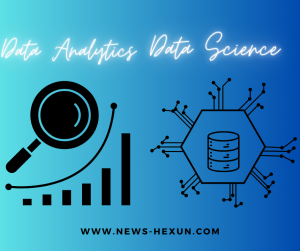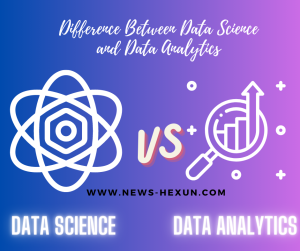
If you were looking for Decoding Data Science and Data Analytics then your search ends here. In the ever-changing landscape of technology and information, data has evolved into the backbone of businesses, fueling innovation and shaping strategic decisions. The terms “Data Science” and “Data Analytics” are often used interchangeably, causing confusion among many. In this comprehensive article, we aim to untangle the intricacies and unique characteristics of these two domains, offering a crystal-clear understanding of the distinctions between Data Science and Data Analytics
Decoding Data Science and Data Analytics :Unraveling Data Science
Data Science encompasses a vast field that amalgamates diverse processes, algorithms, and systems to extract valuable knowledge and insights from both structured and unstructured data. Rooted in the realms of statistics, mathematics, computer science, and domain expertise, Data Science delves into complex datasets to uncover hidden patterns, trends, and correlations.
Key Aspects of Data Science
Data Collection:
At the heart of Data Science lies the process of gathering copious amounts of data from a myriad of sources, ranging from databases to social media and sensor networks.
Data Cleaning and Preprocessing:
Raw data often arrives with errors, missing values, and inconsistencies. Data Scientists deploy advanced techniques to cleanse and preprocess the data, ensuring its integrity and dependability.
Data Analysis:
Post-preprocessing, Data Scientists employ statistical methodologies, machine learning algorithms, and data visualization techniques to extract invaluable insights.
Machine Learning and AI:
Machine learning models and artificial intelligence form the backbone of Data Science, as they aid in constructing predictive and prescriptive models for decision-making.
Business Domain Knowledge:
Understanding the context and domain in which the data is generated is crucial for Data Scientists to interpret results accurately and derive actionable intelligence.
And More about data science
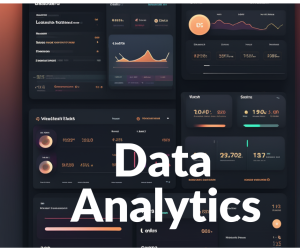
Decoding Data Science and Data Analytics : Decoding Data Analytics
On the other end of the spectrum, Data Analytics revolves around interpreting data, discerning significant patterns, and drawing logical conclusions to drive data-driven decision-making. Focused primarily on historical data, Data Analytics leverages an array of tools and techniques to analyze past performance and trends. And more about data Analytics
Key Aspects of Data Analytics
Descriptive Analytics:
The foremost facet of Data Analytics involves summarizing historical data to gain insights into past trends and events.
Diagnostic Analytics:
Data Analytics plays a crucial role in identifying the root causes of specific events or problems through meticulous analysis of historical data.
Predictive Analytics:
Leveraging historical data and statistical algorithms, Data Analytics foresees future trends and potential outcomes.
Prescriptive Analytics:
Data Analytics recommends actionable strategies and courses of action based on predictive models, optimizing decision-making.
Grasping the Differences
Having elucidated the principal aspects of Data Science and Data Analytics, let us now explore the fundamental dissimilarities between these two realms.
Focus and Objectives
Data Science is primarily concerned with discovering latent patterns and intricate relationships within data, addressing complex questions, and unraveling intricate problems. Its cardinal objective is to unearth valuable insights and knowledge that can steer business strategies and foster innovation.
On the other hand, Data Analytics centers on scrutinizing historical data to comprehend past trends and performance. Its central aim is to facilitate data-driven decisions and optimize processes based on existing data.
Data Handling
Data Science involves wrangling vast and unstructured datasets from a myriad of sources. Data Scientists deploy sophisticated statistical and machine learning techniques to extract meaningful information from this voluminous data.
In contrast, Data Analytics predominantly deals with structured data acquired from databases, spreadsheets, and other structured sources. The analysis centers around exploring past trends and performance metrics.
Timeframe and Scope
Data Science projects generally require a more extended timeframe due to the intricacy of data processing and modeling involved. The scope of Data Science projects spans across critical and strategic business challenges, necessitating in-depth exploration.
Conversely, Data Analytics projects tend to possess a shorter turnaround time since they deal with historical data and focus on specific questions or issues. The scope of Data Analytics projects revolves around tactical and operational insights.
Application Areas
Data Science finds broad applications across various industries, including finance, healthcare, e-commerce, marketing, and more. It plays an instrumental role in areas such as fraud detection, recommendation systems, and predictive maintenance.
Data Analytics, on the other hand, finds extensive use in performance analysis, market research, customer behavior analysis, and other business-specific applications.
The Synergy of Data Science and Data Analytics
While Data Science and Data Analytics serve distinct purposes, they are by no means mutually exclusive. Instead, they synergize to enrich the overall data-driven decision-making process.
Data Science unravels intricate patterns and trends, yielding invaluable insights that Data Analytics can further analyze and implement in real-world scenarios. Data Analytics, in turn, provides feedback on the effectiveness of decisions made, enriching Data Science models with continuous improvement.
Data Scientist or Data Analyst: Which Career Offers the Fatter Paycheck?”
The salaries of Data Scientists and Data Analysts can differ based on various factors such as where they work, their years of experience, educational background, the industry they are in, and the particular company they are employed by. Additionally, salaries may change over time due to shifts in market demand and other economic influences. As of my last update in September 2021, I can offer you some general salary ranges for both professions:
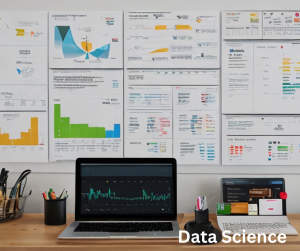
Data Scientist Salary:
Data Scientists typically earn a higher salary compared to Data Analysts, mainly because their role demands additional technical and analytical skills.
1 Entry-level Data Scientist: In the United States, those starting as Data Scientists might earn anywhere from $70,000 to $100,000 per year.
2.Mid-level Data Scientist: After gaining a few years of experience, the salary could range from $100,000 to $150,000 per year.
3.Senior Data Scientist: Experienced Data Scientists, especially those with advanced degrees or specialized skills, have the potential to earn over $150,000 per year, and some may even reach $200,000 or more.
Data Analyst Salary:
Data Analysts generally earn slightly less than Data Scientists, but their salaries can still be competitive and rewarding.
1.Entry-level Data Analyst: In the United States, entry-level Data Analysts might earn around $50,000 to $70,000 per year.
2.Mid-level Data Analyst: With more experience, salaries could fall within the range of $70,000 to $100,000 per year.
3.Senior Data Analyst: Experienced Data Analysts may earn between $100,000 to $120,000 or even more annually.
Please bear in mind that these figures are approximate and can vary significantly based on the aforementioned factors. Moreover, the job market is ever-changing, and salary ranges may have shifted since my last update. It’s always advisable to research the most recent salary data specific to your location and job market to obtain the most accurate and up-to-date information. Furthermore, when considering potential career paths, factors such as job benefits, company culture, and opportunities for growth and development should also be taken into consideration.
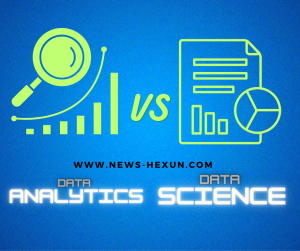
Does data analytics require coding?
Certainly! In the realm of data analytics, coding plays a significant role, although the extent of coding expertise needed can differ based on the tasks and tools at hand. Data analysts typically delve into vast datasets to extract meaningful insights and facilitate decision-making. To effectively manipulate, clean, analyze, and visualize data, having coding skills proves highly advantageous.
Here are some commonly used coding languages and tools in the realm of data analytics:
SQL (Structured Query Language):
SQL is indispensable for querying and manipulating data in relational databases. Data analysts frequently employ SQL to extract, filter, and aggregate data from databases.
Python:
Python enjoys immense popularity as a programming language widely adopted in data analysis. It offers diverse libraries such as Pandas, NumPy, and Matplotlib, which are instrumental for data manipulation, analysis, and visualization.
R:
R stands as another programming language tailor-made for statistical computing and data analysis. It finds common usage in academic and research settings.
Excel:
While not a traditional programming language, Excel facilitates data analysis through formulas, functions, and pivot tables.
Data Visualization Tools:
Tools like Tableau, Power BI, and QlikView often incorporate built-in coding/scripting capabilities to craft interactive data visualizations.
Other Tools and Libraries:
Depending on specific tasks and projects, data analysts may employ other specialized tools and libraries for data analysis and visualization.
Possessing coding skills empowers data analysts to automate repetitive tasks, undertake advanced data analyses, and handle large datasets with greater efficiency. However, the level of coding required may vary depending on the organization and the specific tools they employ. Some data analytics roles may emphasize more on user-friendly point-and-click tools or drag-and-drop interfaces, while others may call for hands-on coding expertise.
Regardless, acquiring coding and data manipulation skills can significantly enhance a data analyst’s capabilities and open up promising career opportunities in the rapidly growing field of data analytics.
Conclusion
In conclusion, Data Science and Data Analytics emerge as two interrelated yet distinct disciplines, each wielding immense power in harnessing the potential of data. While Data Science embarks on a journey of exploration and revelation, uncovering hidden patterns, Data Analytics interprets historical data to empower informed decisions.
The key to successful implementation lies in comprehending the unique strengths of each discipline and adeptly applying them where their potential thrives. Both Data Science and Data Analytics are indispensable pillars in the data-driven world, collectively paving the way for innovation, excellence, and transformative growth.
FAQs
- What are the primary differences between Data Science and Data Analytics?
Data Science focuses on solving complex problems and discovering insights, while Data Analytics interprets historical data to draw conclusions.
- What skills are essential for Data Scientists and Data Analysts?
Data Scientists require programming, statistical, and domain expertise, while Data Analysts need statistical and data interpretation skills.
- How do Data Science and Data Analytics complement each other?
Data Analytics provides initial insights that Data Science can further refine and expand upon using advanced techniques.
- What are some common applications of Data Science?
Data Science finds applications in fraud detection, personalized recommendations, sentiment analysis, and artificial intelligence.
- How do challenges in Data Science and Data Analytics impact decision-making?
Ensuring data privacy, quality, and accuracy are essential to make reliable and informed data-driven decisions.
If You Want to Earn Money From Instagram Reels Click Here

